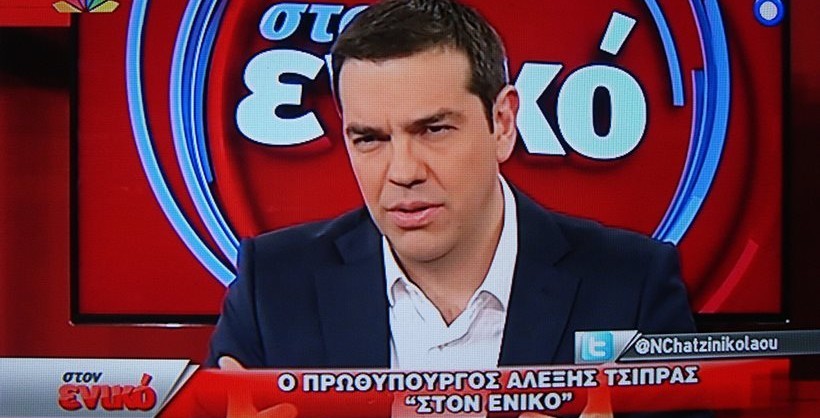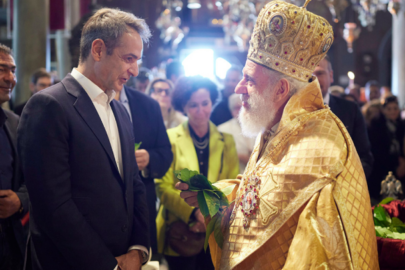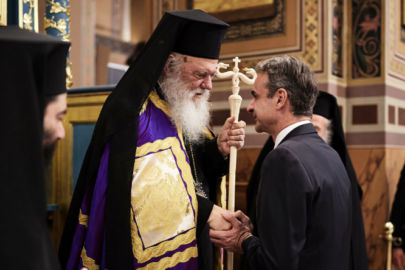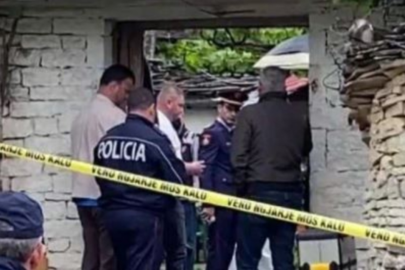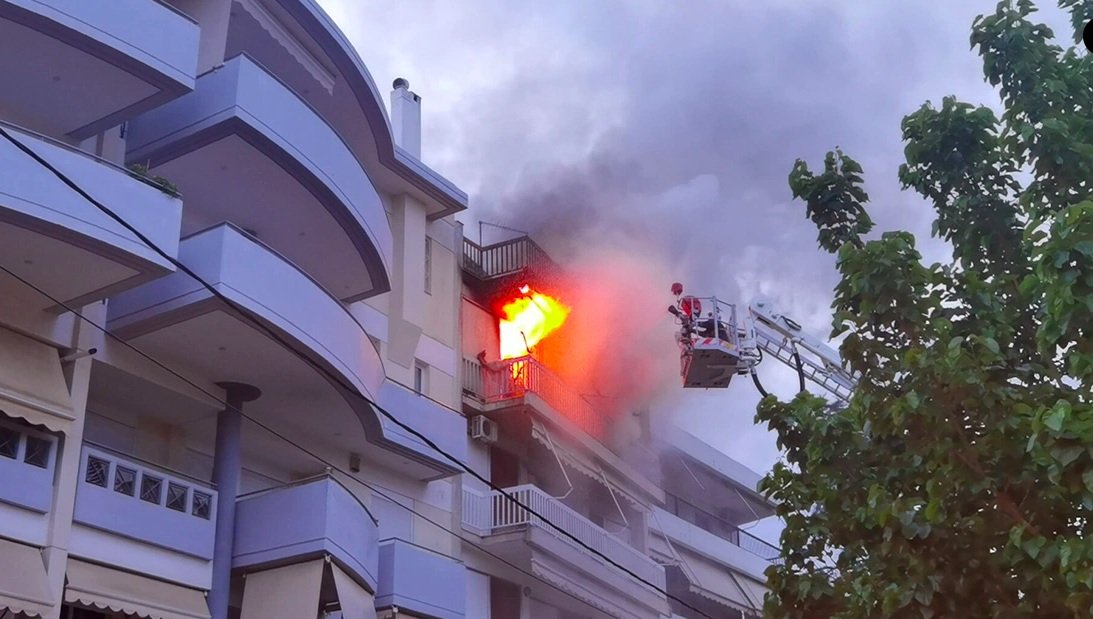Prime Minister Alexis Tsipras appeared confident that an “interim agreement” would be agreed upon with Greece’s partners over the next few days in his first TV interview following the elections on private STAR TV. During this interview he answered viewers’ questions, where he admitted to mistakes in negotiations until now due to the Radical Left Coalition (SYRIZA) government’s inexperience. Audience members asking him questions came from all ages and backgrounds. The questions were mainly about the market and the economy and problems intrinsic to Greece.
He supported Finance Minister Yanis Varoufakis that he believes has become a target of Greece’s international creditors in an effort to debilitate their opponent in negotiations. Tsipras refered to Varoufakis as an economist with integrity. “My aim is not to beautify the situation. There is a negative atmosphere, but this is part of the negotiations – to deconstruct the other side,” he said. He blamed the bad climate surrounding Greece on certain European circles that “leak false news” in an effort to sabotage an agreement. Tsipras was particularly critical of Dutch Eurogroup Chief Jeroen Dijsselbloem and European Central Bank (ECB) Head Mario Draghi who both changed their stand on the agreement reached on February 20 where they had pledged to restore liquidity to Greece but did not keep their word.
The role of the Greek opposition parties in sabotaging negotiations was also criticised. Tsipras said that they say things that creditors would not dare even suggest, and he blamed the previous government of purposely trying to create a deadlock.
Regarding the future, Tsipras said that he would want the Greek people’s mandate, but not in elections, suggesting in this way that a referendum may be held in the case that decisions need to be made for Greece. Once again, he said that the Greek people had wanted someone to negotiate the best deal for Greece within Europe wihtout an exit from the eurozone or default. “My vision is not Greece out of Europe,” he said, commenting on Grexit scenarios.
Regarding the February 20 agreement
“We are in a tough confrontation, and tough negotiations,” said Tsipras. “Everyone had anticipated that there would be no agreement on February 20, but after February 20 there has been a great battle to take back points of an agreement that were a success for Greece. We didn’t tear down the Memorandum in one night, we didn’t leave a system of being monitored immediately, but we got an agreement that gave Greece the opportunity to leave the Hardouvelis e-mail and the commitments of the previous government,” said Tsipras.
“Mistakes and oversights are part of being human,” said Tsipras. “There are mistakes that are criminal, there are mistakes caused under pressure and mistakes because you are being duped. On February 20, I put forth this matter and I got a commitment. The mistake was that we were convinced of a verbal commitment that we did not ask in written form.”
Refering to Draghi and Dijsselbloem’s role on February 20, Tsipras said that Greece made this mistake because it was “misled”, as had been the case on February 18 when the ECB made a decision that was neither ethical or politically sound – to exclude the possibility of systematic banks refinincing the general government. Both Varoufakis and Tsipras received the pledge that the ECB’s decision would be reversed – a lie.
Continuing negotiations
He attributed the variations and moodswings in partners’ attitudes to Greece as negotiation tactics. “Despite the difficulties, the potential for a Greek deal is great,” he said. “The trick is not to respond to negotiation games and movements aimed at creating panic and fear. Anyone afraid in this game loses.” He believes that delays in finding a solution are due to the difficulty Greece’s partners have in accepting that the program they enforced has failed. “It would be very easy for me to sign and agree to an agreement that wouldn’t pass through Parliament, but I don’t have this mandate from the Greek people,” he said.
“It’s about Europe accepting democracy and the sovereignty of the people,” he said, refering to the clash between the state commitmeents and the EU community rules. “We were anxious from the very first days because the (new) government found itself on a landmine. Although there was financial assistance worth 50 bln euros to the Greek banks, the banking sector lacks liquidity.”
He said that traps are lurking everywhere in negotiations.
Debt-Growth divide
He said that the problem was that revenues so far have gone to pay debt, a “bottomless barrel”, rather than to fund growth and jobs. He criticized the troika of Greece’s creditors from the European Commission, European Central Bank and International Monetary Fund for trying to prove that Greek debt is viable. They drew up debt sustainability analyses that included privatization revenues budgeted to bring as much as 50 mln euros but, in reality, this wasn’t the case. “We ask that these revenues be invested into the real economy and job creation,” he said. The government would proceed with joint ventures between private and public sectors to achieve better results.
Tsipras pointed to the need for investments and the opportunities it offers in tourism and energy, however it is hampered by bureacuracy. “An investor coming to Greece does not know how long it would take for bureaucracy, and how much he’ll have to pay under the table,” he said, adding that administration needs to be simplified and the tax system should be stabilized.
ENFIA
Regarding the controversial single property tax (ENFIA) introduced by the previous conservative government, Tsipras said that if Greece has a primary surplus of 1.2% and development at 1.4% then ENFIA will be re-examined. He said that ENFIA would have to stay if there is no surplus on account of priorities. He said that ENFIA’s abolition is linked with reaching economic targets for Greece and it could be moved to 2016.
Russian pipeline agreement
The prime minister pointed to Greece’s success in Moscow, as well as countries such as iran, China and others. He pointed to the importance of the pipeline deal. Tsipras said that discussion is pending and estimated that “if we have 3-5 billion euros, or even 2 billion euros for its construction, in prepayments, is that a bad thing for Greece?” He said that EU regulations would be followed closely and was critical of press reports to the contrary.
Wages and pensions
He said that wages and pensions are the Greek government’s priorities. He said that high social insurance prices were a problem that needed to be addressed. A joint ministerial decision was being drafted to cover more than 2.5 million uninsured Greek people, victims of the humanitarian crisis in Greece.
German reparations
Tsipras said that the issue of German reparations was not so much monetary as it is ethical. “What drives me crazsy is that some peopel accuse us of not paying our debts for four years, but those who owe us are the ones wagging the finger at us,” he said, adding that the German people have a “sense of justice” even though the tabloid press has done a good job of making Greece looks bad. “It needs two to tango, and Siemens played a great role in fostering corruption in Greece,” said Tsipras.
Savvas Xiros’ release
The prime minister said that terrorist Savvas Xiros’ release on the grounds of disability would not create friction in relations with the United States nor complicate negotiations on the Greek economy. He said that the recent bill that allows for the disabled to leave the prison system is part of an effort to provide relief to the overcrowded prison system.
Support to Speaker of the House
Tsipras was fervent in his support of Greek Parliamentary Speaker Zoe Konstantopoulou, stating that she is doing her job well and that she is being targeted due to political interests.
Lagarde list
“We will make everyone on the Lagarde list pay regardless of how powerful they are and how much of the media they control,” said Tsipras.
German Chancellor Angela Merkel
“I didn’t know her personally, I knew her politically,” said Tsipras, regarding the German chancellor. “Usually, the personal meeting is very different. Now that I’ve met her personally I can say that it is no coincidence that she has been chancellor for so long. She is diligent, well-educated and versed on German culture that wants to tell the truth and not mock,” said Tsipras.
Universities
Concerning the recent occupations at universities, Tsipras said that in most cases it is better to converse than make things worse through immediate interventions. Comparing the recent sit-ins to those of 2008, he showed that there was a better handling of the situation.
Migration
“The problem concerns refugees,” he said, adding that they come to Greece with a high education level and had a good standard of living. “They want to go to Europe. A huge problem but also a challenge for Europe. We managed to get the matter discussed at the leaders summit. There needs to be collaboration with Turkey. Europe needs to stop burying its hand in the sand. We are looking to find a solution for the islands so that tourism will not be affected,” he said, adding that the previous government had received 90 mln euros to create centers for refugees but had never exploited these funds.
The interview in English from enikos:

